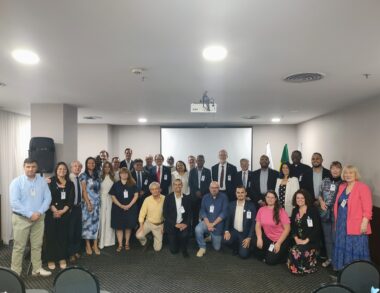Media release | Tuesday, 12 December 2023
The NSW government must urgently build more social housing and fully fund homelessness services after new statistics showed homelessness remaining shockingly high.
Data released today by the Australian Institute of Health and Welfare showed 68,400 people used homelessness services in NSW in the most recent financial year.
Demand was so high that less than half (49%) of people who needed emergency accommodation were able to receive it.
Only 21% of people needing long term accommodation were helped.
“This situation is shocking, heartbreaking and simply should not be happening in a state as wealthy as New South Wales,” said Homelessness NSW CEO Dom Rowe.
"Homelessness services are so stretched they are having to turn away one in two people who knock on their doors. And there are many more people who don’t ask for help at all.
“Frontline services do the best they can to keep people housed, but there are not enough homes and inadequate funding to keep up with demand.
“This Christmas there will be women and children experiencing domestic violence who are forced to choose between homelessness or remaining in an unsafe home.
“The government could easily solve this by investing just an extra $152 million a year into homelessness services so they can meet demand.
“It must also urgently build more social housing which is at historically low levels. This will provide stable homes to people in need, take heat out of the private rental market and ease pressure on our schools, hospitals and community services over the long term.”
The latest AIHW stats revealed:
|
|
2022/23 |
2021/22 (for comparison) |
|
Total # people who were supported by SHS |
68,400 |
68,500 |
|
Main reasons for seeking assistance: 1. Housing crisis 2. Financial difficulties 3. Family and domestic violence |
1. 40% 2. 38% 3. 35% |
1. 40% 2. 36% 3. 35% |
|
People who were homeless when they first presented for support (as opposed to people at risk of homelessness) |
50% |
47% |
|
Clients’ housing situation when they first presented 1. No shelter or improvised/inadequate dwelling (‘sleeping rough’) 2. Short-term temporary accommodation 3. Couch surfing |
1. 7.8%
2. 22% 3. 15.3% |
1. 6.7%
2. 21.9% 3.14.6%
|
|
% of SHS clients who were Indigenous |
32% |
32% |
|
Unmet need for (% of people who needed help but couldn’t get it): 1. short-term/emergency accommodation 2. medium-term/transitional 3. long-term |
1. 51%
2. 64% 3. 79% |
1. 53%
2. 65% 3. 77% |
|
Supported to maintain housing (ie. where people were at risk of, but not yet homeless) |
90% |
90% |
Contact details:
Charlie Moore 0452 606 171
Georgie Moore 0477 779 928

